Introducing the Aquatic Plant Names Committee for the Aquatic Plant Names Standard AS 5301
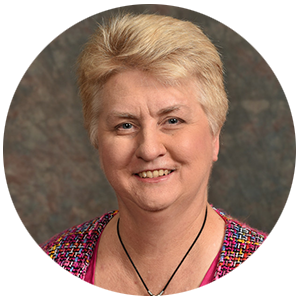
Clare Winkel (Independent Chair) has worked in the food industry since 1987 in diverse roles from the processing floor to Australian Government Departments to private consulting and for multiple certification bodies. Her work has taken her to live in four countries and to conduct auditing work in 14. She has a deep understanding of standards development, and certification process and requirements, and her current role is as Executive Manager–Technical Solutions for Integrity Compliance Solutions. Clare has worked across numerous industries including poultry (meat and eggs) and seafood. In addition to her significant relevant skills and knowledge, Clare brings to the Chair role a personal passion to see a thriving seaweed industry in Australia. One of her recent publications is AgriFutures' 2022, 'Development of a seaweed food safety program – to meet the requirements of FSANZ and third-party hazard analysis and critical control points certification.’ Clare’s qualifications include an MBA, a Bachelor of Applied Science (Biology) and an Export Management Diploma.
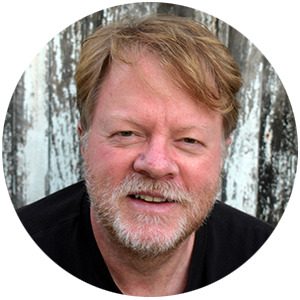
Dr John M. Huisman (Deputy Chair & Expert Member – Academia) is Curator at the Western Australian Herbarium, part of the Department of Biodiversity, Conservation and Attractions. He earned his PhD at the University of Melbourne in 1986, where he developed his interests in the taxonomy of marine macroalgae under the supervision of Gerry Kraft. After moving to Perth, John worked for several years at Murdoch University, then a sojourn to the Hawaiian Islands in 2002–2003 before returning to Western Australia and eventually taking up his current position in 2016. His ongoing lifelong project is to document (by description and photographically) the seaweeds of Australia’s west coast. John has written nine books describing various aspects of marine plant life, including Marine Plants of Australia (2000, revised editions in 2019 and 2023), Hawaiian Reef Plants, and three volumes in the Algae of Australia series, the most recent (2015, 2018) describing the marine flora of tropical Western Australia. In addition, he has authored more than 200 scientific articles and book chapters, plus numerous general interest articles. John’s books have twice been awarded the Prescott Award, presented by the Phycological Society of America and recognising the best book dedicated to phycology published in the previous two years. John is also a keen underwater photographer and his images can be widely seen in books and on websites. He is currently preparing an interactive key to the more than 600 genera of Australian seaweeds.
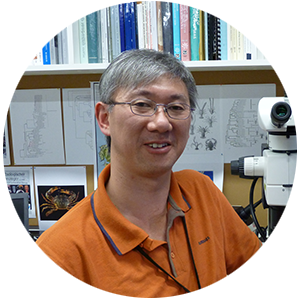 Dr Shane Ahyong (CAAB Expert) has spent a lifetime exploring all things marine and freshwater, being driven by his fascination for aquatic life. He has some 30 years’ experience in the taxonomy of aquatic invertebrates, and has published more than 300 papers, book chapters and books, mostly on taxonomy and phylogenetics of marine and freshwater invertebrates, especially crabs, lobsters and shrimp in recent years. He is currently a Principal Research Scientist and Head of Marine Invertebrates at the Australian Museum, Sydney, and Professor (Adjunct), School of Biological, Earth and Environmental Sciences, University of New South Wales. He completed his PhD in 2000 at the University of New South Wales, followed by an Australian Research Council Postdoctoral Fellowship at the Australian Museum. In 2006, Shane joined the National Institute of Water and Atmospheric Research, Wellington, New Zealand, managing the Marine Invasives Taxonomic Service and Marine Biodiversity and Biosecurity Group, leading a team of some of New Zealand’s best phycologists and marine zoologists. In 2010, Shane assumed his current role at the Australian Museum. With extensive experience in scientific names and naming, Shane joined the APNC as a facilitator for CAAB (Codes for Australian Aquatic Biota) management, to help the committee navigate the use of scientific and common names in accord with the most recent scientific knowledge. He also serves on two international bodies dealing with global species name standards: the International Commission on Zoological Nomenclature (ICZN) and the Steering Committee of the World Register of Marine Species (WoRMS).
Dr Shane Ahyong (CAAB Expert) has spent a lifetime exploring all things marine and freshwater, being driven by his fascination for aquatic life. He has some 30 years’ experience in the taxonomy of aquatic invertebrates, and has published more than 300 papers, book chapters and books, mostly on taxonomy and phylogenetics of marine and freshwater invertebrates, especially crabs, lobsters and shrimp in recent years. He is currently a Principal Research Scientist and Head of Marine Invertebrates at the Australian Museum, Sydney, and Professor (Adjunct), School of Biological, Earth and Environmental Sciences, University of New South Wales. He completed his PhD in 2000 at the University of New South Wales, followed by an Australian Research Council Postdoctoral Fellowship at the Australian Museum. In 2006, Shane joined the National Institute of Water and Atmospheric Research, Wellington, New Zealand, managing the Marine Invasives Taxonomic Service and Marine Biodiversity and Biosecurity Group, leading a team of some of New Zealand’s best phycologists and marine zoologists. In 2010, Shane assumed his current role at the Australian Museum. With extensive experience in scientific names and naming, Shane joined the APNC as a facilitator for CAAB (Codes for Australian Aquatic Biota) management, to help the committee navigate the use of scientific and common names in accord with the most recent scientific knowledge. He also serves on two international bodies dealing with global species name standards: the International Commission on Zoological Nomenclature (ICZN) and the Steering Committee of the World Register of Marine Species (WoRMS).
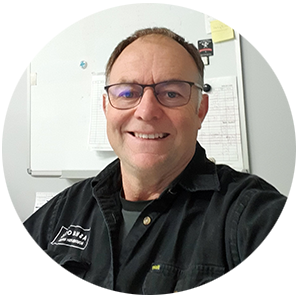 James Ashmore (Expert Member – Industry) is the owner of Ashmore Foods Tasmania Pty Ltd, Tasea Oysters Pty Ltd and a Director at Kai Ho Ocean Treasure Pty Ltd. He has been involved in the seafood and hospitality industry for more than 30 years and brings practical, commercial experience as a mariner (Master Class 5), Commercial Diver and Scale Fisherman (Class A). James runs his seafood wholesale and retail business in Hobart, Tasmania (Ashmores Southern Fish Market). James started Kai Ho Ocean Treasure with Craig Sanderson and together they harvest, process and market Tasmanian native and introduced sea vegetables. This journey involved dealing with Government and academia to allow the start of the harvests while developing markets locally and interstate. Meanwhile, Ashmores HACCP processing facility offers state-of-the-art processing and packaging services for the further development and value adding of sea vegetable products.
James Ashmore (Expert Member – Industry) is the owner of Ashmore Foods Tasmania Pty Ltd, Tasea Oysters Pty Ltd and a Director at Kai Ho Ocean Treasure Pty Ltd. He has been involved in the seafood and hospitality industry for more than 30 years and brings practical, commercial experience as a mariner (Master Class 5), Commercial Diver and Scale Fisherman (Class A). James runs his seafood wholesale and retail business in Hobart, Tasmania (Ashmores Southern Fish Market). James started Kai Ho Ocean Treasure with Craig Sanderson and together they harvest, process and market Tasmanian native and introduced sea vegetables. This journey involved dealing with Government and academia to allow the start of the harvests while developing markets locally and interstate. Meanwhile, Ashmores HACCP processing facility offers state-of-the-art processing and packaging services for the further development and value adding of sea vegetable products.
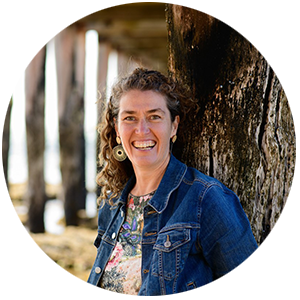 Dr Alecia Bellgrove (Expert Member – Academia) is a Senior Lecturer in Marine Biology and Ecology in the School of Life and Environmental Sciences and Centre for Integrative Ecology at Deakin University Warrnambool Campus, and teaches into the Bachelor of Environmental Science (Marine Biology). Alecia heads up the Deakin Seaweed Research Group, which focuses on research to inform the development of a sustainable seaweed industry for south-eastern Australia, and conservation of natural seaweed ecosystems, whilst increasing public awareness and guardianship of the amazing and gorgeous seaweed flora we have in our region. Alecia completed a Bachelor of Science with Honours and then a PhD in seaweed ecology at Monash University, before travelling to Japan for a Japanese Society for the Promotion of Science Postdoctoral Fellowship. She spent 3 years living and working in Japan as a postdoctoral researcher and has maintained research ties with Japanese colleagues and connections to the Japanese aquaculture industry. Her experience of living and working in Japan led her into the wonderful world of seaweed cuisine. The intersection of her lived personal experiences, passions for great nutritious food and the environment, and her expertise in seaweed biology and ecology have converged to direct her research program in sustainable nutrition solutions through the use of Australian seaweeds.
Dr Alecia Bellgrove (Expert Member – Academia) is a Senior Lecturer in Marine Biology and Ecology in the School of Life and Environmental Sciences and Centre for Integrative Ecology at Deakin University Warrnambool Campus, and teaches into the Bachelor of Environmental Science (Marine Biology). Alecia heads up the Deakin Seaweed Research Group, which focuses on research to inform the development of a sustainable seaweed industry for south-eastern Australia, and conservation of natural seaweed ecosystems, whilst increasing public awareness and guardianship of the amazing and gorgeous seaweed flora we have in our region. Alecia completed a Bachelor of Science with Honours and then a PhD in seaweed ecology at Monash University, before travelling to Japan for a Japanese Society for the Promotion of Science Postdoctoral Fellowship. She spent 3 years living and working in Japan as a postdoctoral researcher and has maintained research ties with Japanese colleagues and connections to the Japanese aquaculture industry. Her experience of living and working in Japan led her into the wonderful world of seaweed cuisine. The intersection of her lived personal experiences, passions for great nutritious food and the environment, and her expertise in seaweed biology and ecology have converged to direct her research program in sustainable nutrition solutions through the use of Australian seaweeds.
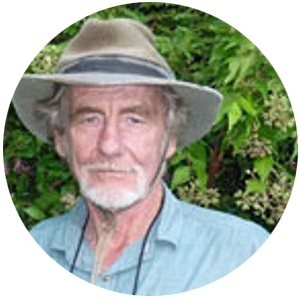 Rus Glover (Expert Member – Industry) has been a director of the Australian Native Foods and Botanicals (ANFAB) peak industry body since 2007, bringing experience in agriculture, horticulture and research. He is currently the Deputy Chair and Research Director. Rus has a background in coastal and estuarine ecology and has produced several coastal and estuarine plant guides to identification, propagation and rehabilitation of coastal ecosystems. Rus owns Woolgoolga Rainforest Products, a business that specialises in the commercial production of Riberries, Rosella, Aniseed Myrtle, Lemon Aspen and Davidson Plums on the north coast of NSW. This was set up to provide year-round reliable supply of Australian native produce. He owns and manages Glovers Tubes that grows native tube stock, particularly fruit species, and aims to select and breed better commercial varieties. He is also a Qualified Person with IP Australia and as such prepares applications for Plant Breeders Rights specialising in Australian native species. From a farming and horticultural background, Rus is passionate about the growing and use of native foods that include all the Australian aquatic salt and freshwater plants and algae that have been used by the indigenous community for millennia.
Rus Glover (Expert Member – Industry) has been a director of the Australian Native Foods and Botanicals (ANFAB) peak industry body since 2007, bringing experience in agriculture, horticulture and research. He is currently the Deputy Chair and Research Director. Rus has a background in coastal and estuarine ecology and has produced several coastal and estuarine plant guides to identification, propagation and rehabilitation of coastal ecosystems. Rus owns Woolgoolga Rainforest Products, a business that specialises in the commercial production of Riberries, Rosella, Aniseed Myrtle, Lemon Aspen and Davidson Plums on the north coast of NSW. This was set up to provide year-round reliable supply of Australian native produce. He owns and manages Glovers Tubes that grows native tube stock, particularly fruit species, and aims to select and breed better commercial varieties. He is also a Qualified Person with IP Australia and as such prepares applications for Plant Breeders Rights specialising in Australian native species. From a farming and horticultural background, Rus is passionate about the growing and use of native foods that include all the Australian aquatic salt and freshwater plants and algae that have been used by the indigenous community for millennia.
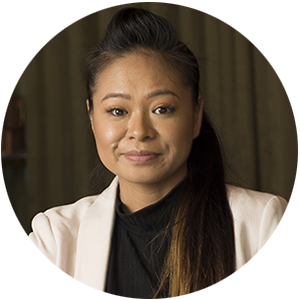
Umar Nguyen (Expert Member – Hospitality) is a fully qualified Chef and has worked in the seafood industry for more than 15 years predominantly as a sales executive to wholesalers around Australia and marketing to chefs with her own unique style. Umar started her own business in 2016 with the vision of linking primary producers to chefs around Australia. Umar currently supports chefs by sharing and educating them about primary producers’ products with “their stories, providence and catching and/or growing techniques”, which can include types of seaweeds.
Although her time in the kitchen is up, and mee goreng is at the top of her list of speciality dishes, her ability to talk chef hasn’t changed. This has allowed her to promote her true passion of making use of underutilised seafood in our great country. Umar’s passion to share everything seafood from catch to plate is what drives her to find better ways to future-proof the industry and make the underutilised the new normal, trying to get to “zero waste”.
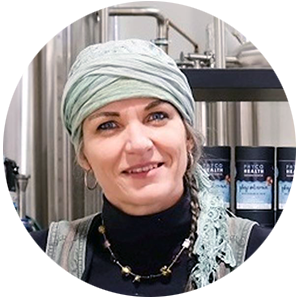 Dr Pia Winberg (Expert Member – Industry) is the CEO & Chief Scientist at Venus Shell Systems Pty Ltd, the CEO of PhycoHealth Pty Ltd and Honorary Fellow – School of Medicine, University of Wollongong. Pia has worked across sustainable marine industry development and academia for the past 20 years. Her focus has moved from research to applied technology development in integrating marine food production systems with the environment, to deliver potent nutritional benefits to society. Her research was founded in the 1990’s in integrated tropical aquaculture systems that utilised seaweed to remediate waste nutrients from Tiger Prawn aquaculture farms and developed to include research in temperate fish and shellfish systems. However, Pia’s PhD research focused on marine systems ecology, and now she is focused on applying this knowledge to sustainable marine food production systems. Pia believes that nutrition and food is a key opportunity for a transition to a more sustainable future, and the oceans and especially seaweeds are a platform that can deliver on that if approached wisely. In this way, Pia has undertaken over a decade of research of seaweed species in Australia and explored diverse production methods, as well as undertaken human clinical trials on seaweed for metabolic health. Pia has embarked on the development of a seaweed industry for Australia, and founded Venus Shell Systems for the production of seaweed, and PhycoHealth for the development and delivery of seaweed products to the market. Both companies are developing on the south coast of NSW.
Dr Pia Winberg (Expert Member – Industry) is the CEO & Chief Scientist at Venus Shell Systems Pty Ltd, the CEO of PhycoHealth Pty Ltd and Honorary Fellow – School of Medicine, University of Wollongong. Pia has worked across sustainable marine industry development and academia for the past 20 years. Her focus has moved from research to applied technology development in integrating marine food production systems with the environment, to deliver potent nutritional benefits to society. Her research was founded in the 1990’s in integrated tropical aquaculture systems that utilised seaweed to remediate waste nutrients from Tiger Prawn aquaculture farms and developed to include research in temperate fish and shellfish systems. However, Pia’s PhD research focused on marine systems ecology, and now she is focused on applying this knowledge to sustainable marine food production systems. Pia believes that nutrition and food is a key opportunity for a transition to a more sustainable future, and the oceans and especially seaweeds are a platform that can deliver on that if approached wisely. In this way, Pia has undertaken over a decade of research of seaweed species in Australia and explored diverse production methods, as well as undertaken human clinical trials on seaweed for metabolic health. Pia has embarked on the development of a seaweed industry for Australia, and founded Venus Shell Systems for the production of seaweed, and PhycoHealth for the development and delivery of seaweed products to the market. Both companies are developing on the south coast of NSW.
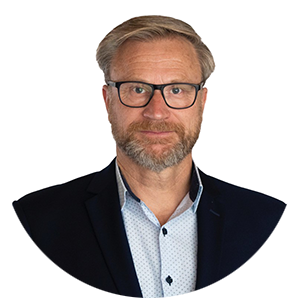 Project Manager
Project Manager
Gordon Yearsley (APNC Project Manager) (known widely as ‘Gus’), has worked in the fields of seafood names and fish systematics since the late 1980’s. He has a Science Degree with a double major in Botany and Zoology, and an Honours Degree in the systematics of stingarees. He studied at the University of Tasmania and then worked as a fish taxonomist at CSIRO in Hobart for about 20 years. Early in his CSIRO career, Gus helped produce guides to seafood marketing names, and thus began his interest in standardised names. He has authored and co-authored dozens of scientific papers, books and reports, and has given scientific names to more than fifteen Australian and South-East Asian fishes. These have included species of stingrays, sharks, oreodories and scorpionfishes. Three of the books as senior editor/author are the Australian Seafood Handbooks (domestic and imported species volumes) and the second edition of the Australian Seafood Users Manual. Gus has been involved with the Fish Names Committee and its precursors since the late 1980’s and has extensive knowledge and experience regarding the process of establishing and managing a names standard under the auspices of Standards Australia. He was therefore asked to Chair the inaugural Aquatic Plant Names Committee to help guide the process on behalf of the aquatic plant and seaweed industries. Gus is also chairman and/or board member of a number of charities and not-for-profits.





